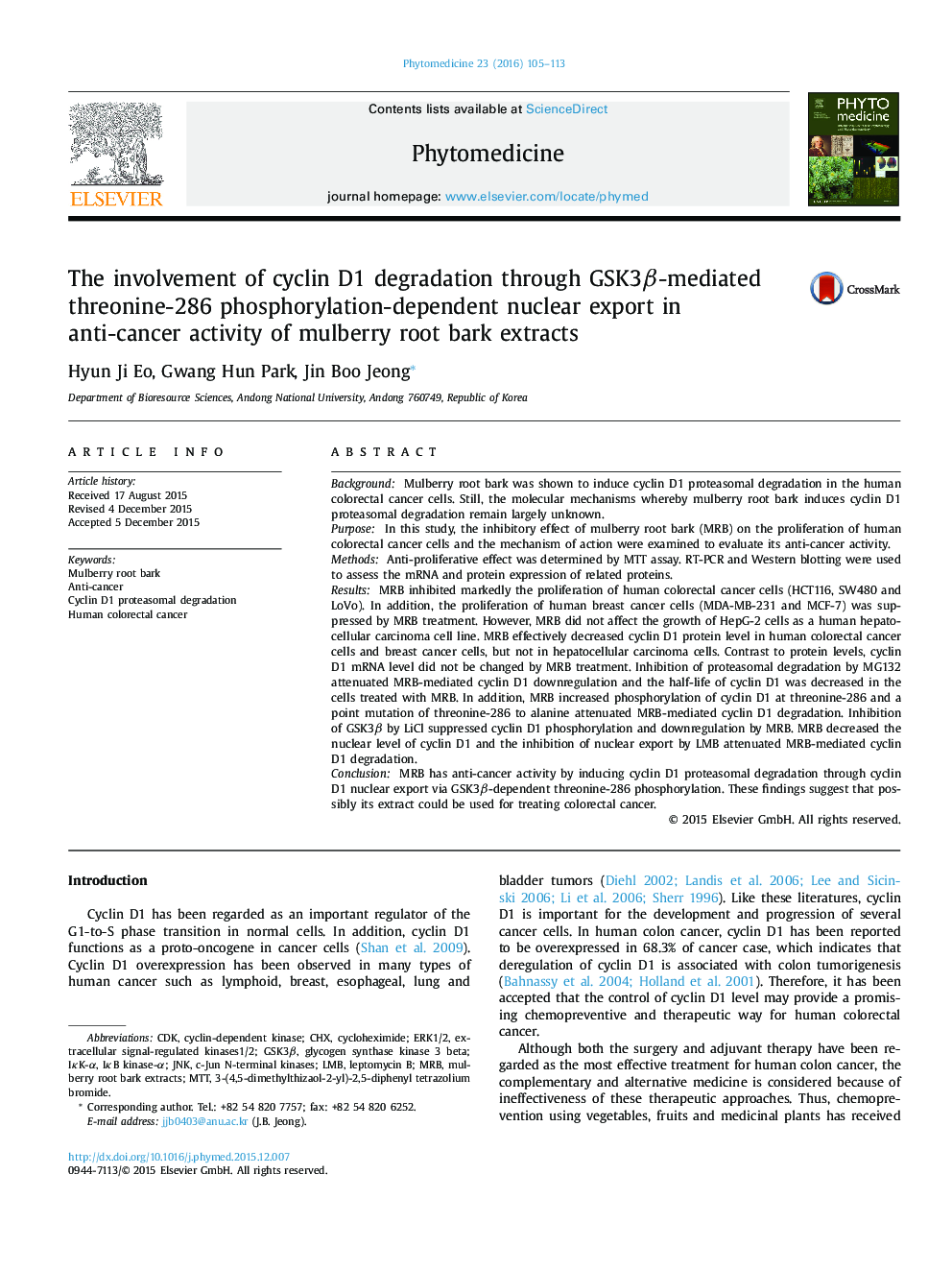| کد مقاله | کد نشریه | سال انتشار | مقاله انگلیسی | نسخه تمام متن |
|---|---|---|---|---|
| 2496367 | 1116130 | 2016 | 9 صفحه PDF | دانلود رایگان |

BackgroundMulberry root bark was shown to induce cyclin D1 proteasomal degradation in the human colorectal cancer cells. Still, the molecular mechanisms whereby mulberry root bark induces cyclin D1 proteasomal degradation remain largely unknown.PurposeIn this study, the inhibitory effect of mulberry root bark (MRB) on the proliferation of human colorectal cancer cells and the mechanism of action were examined to evaluate its anti-cancer activity.MethodsAnti-proliferative effect was determined by MTT assay. RT-PCR and Western blotting were used to assess the mRNA and protein expression of related proteins.ResultsMRB inhibited markedly the proliferation of human colorectal cancer cells (HCT116, SW480 and LoVo). In addition, the proliferation of human breast cancer cells (MDA-MB-231 and MCF-7) was suppressed by MRB treatment. However, MRB did not affect the growth of HepG-2 cells as a human hepatocellular carcinoma cell line. MRB effectively decreased cyclin D1 protein level in human colorectal cancer cells and breast cancer cells, but not in hepatocellular carcinoma cells. Contrast to protein levels, cyclin D1 mRNA level did not be changed by MRB treatment. Inhibition of proteasomal degradation by MG132 attenuated MRB-mediated cyclin D1 downregulation and the half-life of cyclin D1 was decreased in the cells treated with MRB. In addition, MRB increased phosphorylation of cyclin D1 at threonine-286 and a point mutation of threonine-286 to alanine attenuated MRB-mediated cyclin D1 degradation. Inhibition of GSK3β by LiCl suppressed cyclin D1 phosphorylation and downregulation by MRB. MRB decreased the nuclear level of cyclin D1 and the inhibition of nuclear export by LMB attenuated MRB-mediated cyclin D1 degradation.ConclusionMRB has anti-cancer activity by inducing cyclin D1 proteasomal degradation through cyclin D1 nuclear export via GSK3β-dependent threonine-286 phosphorylation. These findings suggest that possibly its extract could be used for treating colorectal cancer.
Figure optionsDownload high-quality image (121 K)Download as PowerPoint slide
Journal: Phytomedicine - Volume 23, Issue 2, 15 February 2016, Pages 105–113